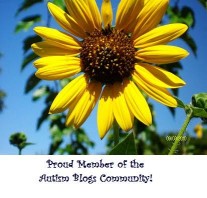Being an Atypical Extrovert
I sometimes surprise myself when doing some self-reflecting into who I really am and how I would characterise myself. One thing that I discovered really only now about myself is that I am an extrovert. In the past, I never really associated myself with that term despite knowing about the terms introvert and extrovert for over six years. In fact, when I first heard of the terms, I immediately went for the term introvert. And until about a month ago, I never really about it further until I made comment to my family about it to which my mother said, “No, I think you’re an extrovert.” I believe this is because I’m a rather atypical extrovert.
I first heard the terms when I was in the middle of my undergrad at Acadia. I was discussing with a counselor I was seeing then about my difficulties in social interaction, which brought about. I forget the original definitions we used for introvert and extrovert, but whatever they were they led me to believe that I was an introvert. This was probably because I have a few qualities that introverts typically possess. For example, I tend to think before I speak and I like to work on my academic work alone with few interruptions. I think I made the error that introversion and extroversion rely heavily on how one behaves when alone or with other people. In my mind, I was thinking “this person talks a lot so they’re an extrovert” or “this person talks very little so they’re an introvert”. It really only dawned on me now that, while that reasoning may be true in many if not most cases, neither implication is true. It’s very possible to be a quiet extrovert or a loud introvert. They aren’t oxymorons.
For example, (as in my case) a person who is quieter than average isn’t necessarily quieter by choice. Due to other characteristics they possess, they find being quiet easier, more comfortable, more convenient, etc. I’ve discovered this is the case for me. I’m not as loud spoken as a lot of extroverts are, but this is due to circumstances that are quite challenging for me to control if not out of my control altogether. I didn’t choose to have a different perspective when it comes to socializing due to my autism (not saying that’s a bad thing!), or to be shyer than other extroverts, or to have social anxiety. I will admit I often get envious and even jealous of extroverts who don’t have these roadblocks in the way and who follow their natural desires without showing much sweat. However, I am taking steps to address such things, which I will tell about in a future blog post.
Trust me, if it weren’t for these things, and I believe I would be striking up conversations with people (new and old) every which way I turn at social gatherings, striving more forcefully for attention and to be in the spotlight and trying to be the life of every party. Since coming to this realization, I’ve done some research on the internet to see if anyone felt the same way. It turns out quite a few people do. Physical behaviours actually have very little to do with where you are on the introvert/extrovert spectrum. What really defines introversion and extroversion is your natural preference.
In growing up, I was always known in school for being the quiet one and even I was convinced then that my desire was to be in solitude. It’s difficult to distinguish what you want to do and what you find easy to do when you’re still growing up. I was always an extrovert. It just was (and still is) easier to act more introverted than I actually am.
